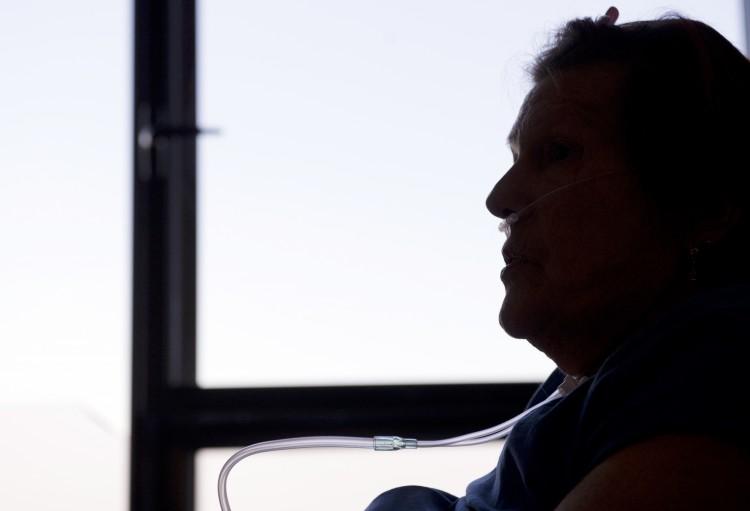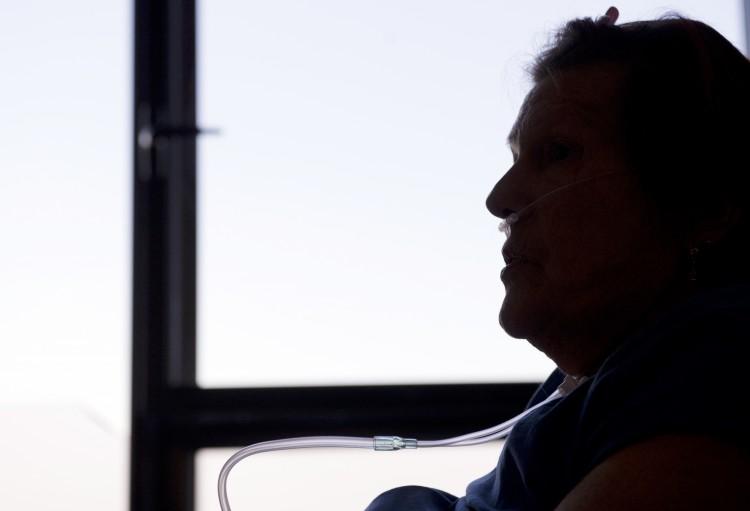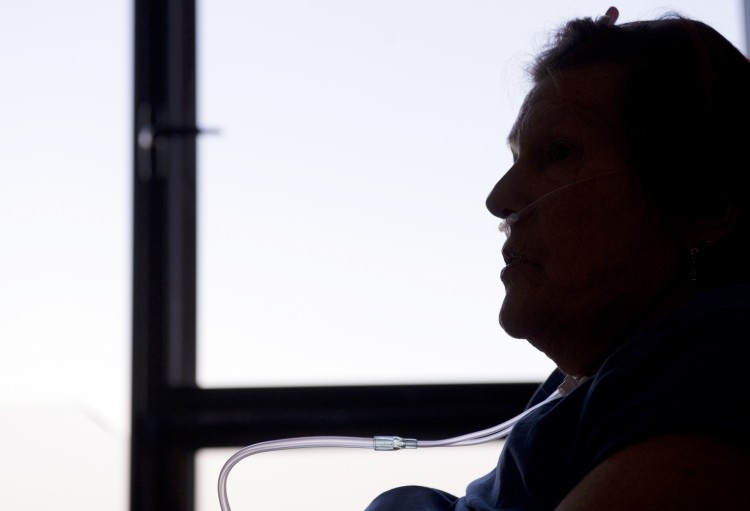Quebec Physicians Launch Campaign Against Doctor-assisted Suicide
A physicians group against doctor-assisted suicide has launched a campaign to stop the practice from becoming legal.

A 60-year-old woman suffering from cancer rests in a hospital palliative care unit in a file photo. Alain Jocard/AFP/Getty Images
|Updated:





